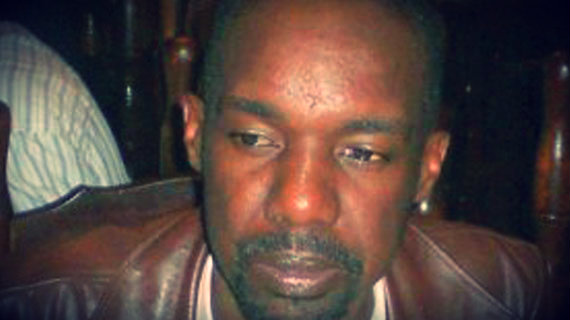
TWO distinct incidents have motivated me to write this allegory on doctors.
Lenox Mhlanga
Don’t get me wrong, I don’t hate doctors per se. I have loads of doctor friends and relatives and it is indeed a blessing to have one stuck somewhere in the family tree.
The high financial demands of cleaning up the mess created by dysfunctional relatives make it altogether necessary.
In the first case, a friend was forced by circumstances to seek the services of an urologist for his sick mother. A complication with her kidneys meant that she had to go through expensive tests that included a CAT (computer axial tomography) scan.
A CAT scan is a medical imaging method that employs tomography. Tomography is the process of generating a two-dimensional image of a slice or section through a three-dimensional object (a tomogram). I will stop there lest I overextend the capabilities of my thick brain. I know that it’s a damn expensive procedure.
The CAT is then sent to the urologist of your choice who is then supposed to make an informed prognosis (guess work, if you ask me). The said overpaid urologist takes out the scan, lounges back in the chair and regales our befuddled friend and his equally bamboozled mother with confusing medical terminology that meant only one thing — that they would be paying a whole lot more money through their noses. It was only after getting second opinion from a medical relative in the United Kingdom that they learnt that the procedures recommended by our famed urologist with such pomposity were not necessary!
The second case is one you know because it is in the public domain. The late Mike Karakadzai’s family had to raise $3 000 before he could be attended to in the casualty section of a local hospital after a horrific car accident. The rest, they say, is now history. His case is not the only one. It’s only his prominence that brought this despicable practice to the fore.
- Chamisa under fire over US$120K donation
- Mavhunga puts DeMbare into Chibuku quarterfinals
- Pension funds bet on Cabora Bassa oilfields
- Councils defy govt fire tender directive
Keep Reading
Some time back I read a book by Dr Vernon Coleman titled How To Stop Your Doctor Killing You. He holds very strong views on the medical profession, vaccines, the government and politicians, which makes him and me very good buddies.
He is of the opinion that anything that the government organises is required to be inefficient, uncaring and incompetently run.
The controversial author believes that the medical profession in its present state has become a danger to mankind.
“Which of these people do you think poses the greatest threat to your life: A burglar, a mugger, a drunken driver, a drug-crazed lunatic or a temporarily insane relative running amok with a sharp knife?” he asks. It’s none of them. The person most likely to kill you, Coleman says, is your doctor.
He makes a shocking claim, at least to the profession itself, that a staggering amount of evidence to show that modern Western doctors, equipped with fancy drugs, exotic forms of surgery and impressive sounding radiotherapy techniques, are ranked alongside cancer, heart disease and stroke as major killers.
He could have coined the proverb which says: A young doctor means a new graveyard had it not been attributed to the Germans. An opponent of a national health system, Coleman, believes that this has stolen the intimacy and privacy of the doctor-client relationship and not only made it public, but patently dangerous to the patient.
Coleman, a popular columnist and author of more than 100 books goes against the medical grain by informing his readers that at least two-thirds of all tests and investigations ordered by doctors and cost patients a fortune are useless. Now there goes the analytical laboratory business out of the window.
For example, he says, one survey showed that the routine examination of blood and urine contributes to only 1% of diagnoses made. This reminds me of the case of a business colleague based in Botswana who, after a car accident, went for a battery of tests that came out with negative results implying that his injuries were not that serious.
That was until exactly three months later when another practitioner accidentally discovered a life-threatening pulmonary embolism that was a direct result of the accident.
So why does the doctor order these tests even if they were useless?
Coleman says that it’s because doctors are trained that way. Young and newly-qualified doctors are encouraged by consultants to order all available tests perhaps to keep the laboratories in business, a case of one hand washing the other. Little thought is given to the costs of all those tests to the patient.
Secondly, doctors order tests in order to impress their patients, colleagues, students and, of course, themselves, Coleman says.
Thirdly, doctors frequently order unnecessary tests because they are planning to write papers for medical journals and they need lots of data to fill up the pages and make themselves look clever.
Lastly, tests are done to protect doctors from litigation or possible accusations of negligence.
The moral is simple, Coleman says; if your doctor arranges for tests to be done, ask him or her if they are really necessary. If the answer is no, then what is the point? Lenox Mhlanga is a social commentator










